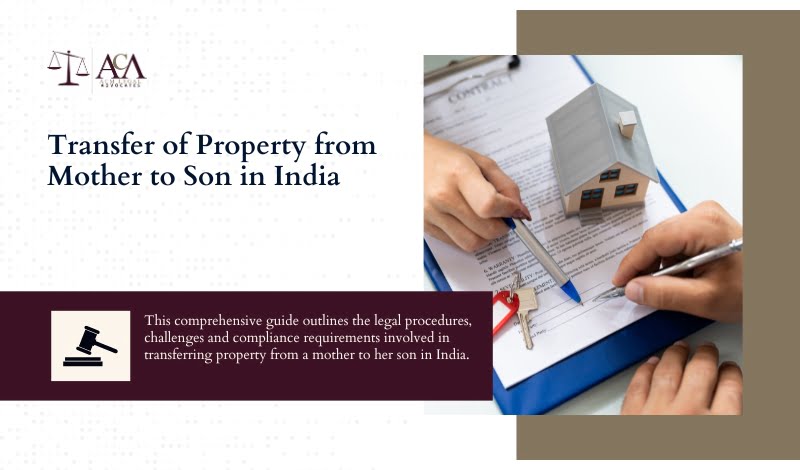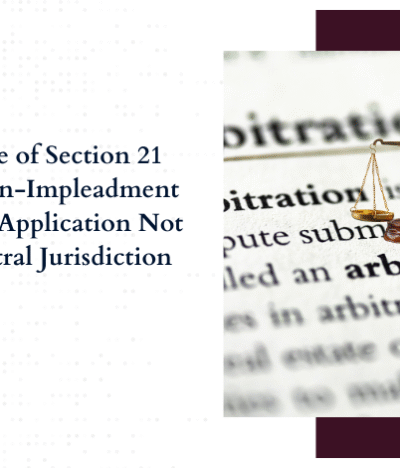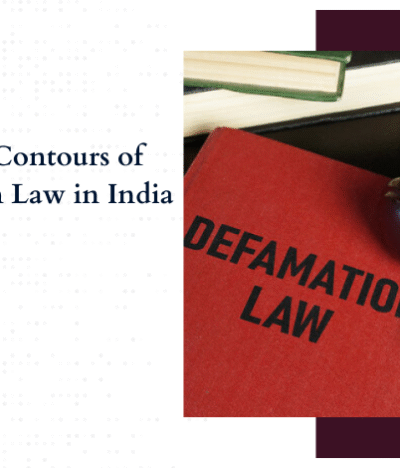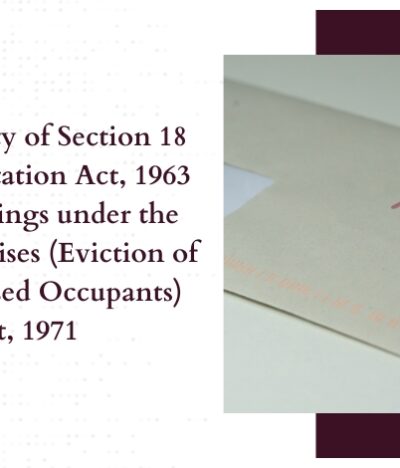Can a mother transfer property to her son in India? In India, the procedure to transfer property from a mother to her son encompasses various procedures, regulations and potential challenges. From drafting legal documents to ensuring compliance, the process requires careful consideration and execution.
This article serves as a comprehensive guide for mother-son property transfer in India, offering insights into the significance of accurate documentation, legal compliance and common challenges. By providing a structured overview of the legal landscape, this article aims to empower individuals to navigate the procedure to transfer property from a mother to her son confidently and ensure compliance with legal formalities.
How to Transfer of Property from Mother to Son in India
When considering how to transfer property from a mother to her son in India, it’s essential to navigate legal procedures adeptly. These steps are vital for ensuring the legality and validity of the mother-son property transfer.
1. Transfer of Property Through Gift Deed
Transferring property through a gift deed involves legally transferring ownership from one person (the donor) to another (the donee) without financial compensation, typically among family members.
1.1 Drafting the Gift Deed
A gift deed should be drafted, including the details of the property, the donor (mother), and the donee (son). It should clearly state that the transfer is a gift without any monetary exchange.
1.2 Acceptance by the Donee
The son must accept the gift during the lifetime of the mother.
1.3 Stamp Duty
For property transfer through a gift deed among blood relatives, disclosing the property’s value is typically not required. However, stamp duty must still be paid, which varies across states:
Punjab imposes a stamp duty of 6% for similar property gifts to family members.
In Delhi, stamp duty and transfer duty are 4% of the circle rate for female donees, 6% for male donees, and 5% for joint possession.
1.4 Registration
To register the gift deed, both parties must visit the Sub-Registrar’s office with two witnesses and the necessary documents, including the original gift deed, identity proofs (Aadhaar, PAN card) and the original property documents. Registration fees vary by state.
1.5 Required Documents
- Drafted Gift Deed
- Proof of Identity
- Property Documents
- Encumbrance Certificate
- No Objection Certificate (if applicable)
- Proof of Payment of Stamp Duty
2. Transferring Property Through a Sale Deed
Transferring property through a sale deed involves transferring ownership from a seller to a buyer in exchange for a specified monetary consideration.
2.1 Agreement to Sell
Before drafting the sale deed, the mother and son should reach an agreement regarding the terms of the sale. This includes the sale price, the description of the property, and any other conditions of the sale.
2.2 Drafting the Sale Deed
A sale deed is a legal document that formally transfers ownership of the property from the seller (mother) to the buyer (son). The deed should include:
- Details of the parties (mother and son)
- Description of the property
- Sale consideration (price)
- Mode of payment
- Transfer of rights, title, and interest
- Date of possession transfer
2.3 Execution of the Sale Deed
Both parties must sign the sale deed. This signing should take place in the presence of at least two witnesses who will also sign the document at the concerned sub-registrar’s office.
2.4 Payment of Stamp Duty and Registration Fees
The son (buyer) is typically responsible for paying the stamp duty and registration fees. The amount varies depending on the property’s location and its value. Payment is made at the local sub-registrar’s office.
2.5 Registration of the Sale Deed
The sale deed must be registered with the local sub-registrar to be legally valid. Both parties need to be present along with the witnesses and original documents. The following documents are generally required:
- Signed sale deed
- Identity proofs of the buyer and seller (e.g., Aadhaar card, PAN card)
- Passport-sized photographs
- Proof of payment of stamp duty and registration fees
- Previous title documents of the property
- Encumbrance certificate
During registration, the sub-registrar will verify the documents and ensure compliance with legal requirements. After verification, the sale deed is recorded, and a registered copy is provided to the buyer.
2.6 Mutation of Property
After registration, the son should apply for the mutation of the property in the local municipal records. This updates the property records to reflect the new ownership.
3. Transfer of Property via Succession
Property transfer via succession occurs when ownership is passed to heirs or beneficiaries through inheritance laws or a will.
3.1 Testamentary Succession
Testamentary succession, governed by the Indian Succession Act, involves distributing a deceased person’s property according to their will.
3.1.1 The Will
The will should explicitly state the intention to transfer the property to the son upon the mother’s death. It must include property details and the names of the beneficiaries. The mother must sign the will in the presence of at least two witnesses, who will also sign, confirming the will’s voluntary execution. Although not mandatory, registering the will with the Sub-Registrar adds an extra layer of authenticity and minimizes the risk of future disputes.
3.1.2 Declaration of Title Suit
The son (plaintiff) files a suit in a civil court to assert his right to the property. He must provide documentary evidence such as the will, title deeds and other relevant documents to establish his legal right or title to the property. The court examines the evidence, which may include witness testimonies. Both documentary and oral evidence are considered. If the court is satisfied with the evidence, it may issue a declaration affirming the son’s title to the property.
3.1.3 Probate Process (If Required)
In cities like Mumbai, Chennai, and Kolkata, probate of a will is mandatory. In some cases, if the property is situated in another city, probate is required to be executed in the city where the will is being executed. The executor named in the will files a petition for probate. The court verifies the will, and if it is found valid, grants probate, giving the executor the authority to distribute the property as per the will’s instructions.
3.1.4 Mutation of Property
After obtaining probate, the son must apply for the mutation of the property in the local municipal or revenue office to update the property records.
3.1.5 Required Documents
- Drafted Will
- Death Certificate
- Identity Proofs
- Witnesses’ Identity Proofs
- Executor’s Identity Proof
- Property Documents
- Legal Heir Certificate
- Succession Certificate
- Any Other Relevant Documents
3.2 Intestate Succession (Without a Will)
Intestate succession refers to the legal process of distributing the property of a deceased individual who did not leave a valid will. In such cases, the distribution of the deceased’s assets is governed by the rules depending on the personal laws applicable to the deceased’s religion or community.
3.2.1 Identifying Legal Heirs
The first step is to identify the legal heirs of the deceased mother. The legal heirs are determined based on the personal laws applicable to the deceased’s religion. In India, different personal laws govern intestate succession for individuals belonging to different religions, such as Hindu, Muslim, Christian, etc. The legal heirs typically include the spouse, children (both sons and daughters), parents, and other close relatives as defined by the applicable personal laws.
3.2.2 Legal Heir Certificate or Succession Certificate
Once the legal heirs are identified, they need to obtain a legal heir certificate or succession certificate from the relevant authority. This certificate serves as proof of the legal heir’s entitlement to the deceased’s assets. The application for these certificates usually requires submitting documents such as the death certificate of the deceased, proof of relationship with the deceased (such as birth certificates), and any other relevant documents specified by the authorities.
3.2.3 Verification and Issuance of Certificate
The relevant authority verifies the documents submitted along with the application to establish the claim of the legal heirs. Upon satisfactory verification, the authority issues a legal heir or succession certificate.
3.2.4 Partition of Property
If the deceased mother leaves behind multiple legal heirs, the next step is to partition the property among them. The partition process involves determining the shares of each legal heir as per the applicable personal laws.
In the case of a Hindu female dying intestate, her property devolves as, initially, it passes to her sons, daughters and husband. Subsequently, if the primary heirs are absent, the property devolves to the heirs of the husband. Following this, if no eligible claimants from the husband’s side emerge, it then transfers to the mother and father of the deceased. In the absence of both parental heirs, the property proceeds to the heirs of the father, and finally, if no other claimants exist, it devolves upon the heirs of the mother. This hierarchy ensures an orderly succession process for the assets of a deceased Hindu female.
3.2.5 Mutation of Property Titles
Once the shares of the legal heirs are determined through the partition process, the next step is to update the transfer of property titles in their names. This is done through a mutation process conducted by the municipal corporation, depending on the nature of the property. The legal heirs must submit the legal heir certificate along with other relevant documents to initiate the mutation process. After due verification, the property titles are transferred to the names of the respective legal heirs.
3.2.6 Transfer of Possession and Ownership
After the mutation of property titles is completed, the legal heirs, including the son, become the rightful owners of their respective shares of the deceased mother’s property.
3.2.7 Documents Required
- Death Certificate
- Legal Heir Certificate
- Identity Proof
- Property Documents
- Affidavit (if required)
- Succession Certificate
- Any Other Relevant Documents
Common Challenges in Transferring Property from Mother to Son
Navigating the transfer of property from mother to son in India poses several challenges:
Legal Requirements and Paperwork
Completing all necessary legal formalities and paperwork accurately can be complex. The process requires detailed legal documents, including the transfer deed, property registration, and updating public records. Errors or omissions can invalidate the transfer or lead to legal issues in the future.
Family Disputes
Disputes among family members can complicate property transfers, even if they comply with inheritance laws. Relatives, such as siblings, may contest the transfer if they feel it is unfair or they are excluded from the inheritance. These conflicts can stem from perceived inequities, misunderstandings, or longstanding family tensions.
Inheritance Laws and Succession Rights
India has diverse inheritance laws based on religion, personal laws, and regional customs, which can complicate property transfers. Ensuring compliance with the relevant succession laws and religious customs is crucial.
Taxation and Stamp Duty
Property transfers are subject to various taxes, including stamp duty, capital gains tax, and inheritance tax, depending on the nature and value of the transfer. Incorrect tax assessments or failure to pay stamp duty can result in legal penalties and delays in the transfer process.
Fraudulent Practices and Documentation
Ensuring the authenticity and correctness of all documentation is vital to prevent fraud. This includes verifying property titles, ensuring no encumbrances, and having all parties involved properly identified and their consent documented.
Conclusion
Navigating the procedure to transfer property from a mother to her son in India involves meticulous attention to legal procedures, documentation, and potential challenges. Whether through a gift deed, sale deed, or succession, the process requires careful consideration, adherence to succession laws, and compliance with taxation regulations.
Explore Property Transfer Solutions with ACM Legal
In navigating the complexities of mother-son property transfer, personalized legal advice tailored to individual circumstances is invaluable. Consulting with experienced legal professionals ensures a thorough understanding of legal requirements, minimizes risks of errors or disputes, and ultimately facilitates a seamless transfer process. At ACM Legal, our team of experts offers specialized guidance to address unique needs and concerns, empowering clients to make informed decisions with confidence.
FAQs
1. How to transfer property from mother to son in India?
In India, property can be transferred from a mother to a son through a gift deed, sale deed, or through succession. Each method requires legal documentation, registration, and compliance with applicable laws and taxes. Consulting legal experts is advisable to ensure a smooth transfer process.
2. What legal procedures must be followed when transferring property from a mother to her son in India?
The legal procedures involve drafting the necessary legal documents (gift deed, sale deed, or will), paying the applicable stamp duty, registering the documents at the sub-registrar’s office, and updating municipal records for mutation of the property.
3. How can disputes be avoided during the transfer of property from mother to son?
Disputes can be avoided by ensuring all legal formalities are thoroughly completed, clear communication among family members, and, if possible, having the transfer documents reviewed and facilitated by a legal expert.
4. What documents are essential for transferring property from mother to son in India?
Essential documents include the drafted transfer deed (gift deed, sale deed, or will), proof of identity of both parties, property documents, encumbrance certificate, no objection certificate (if applicable), proof of payment of stamp duty, and any other relevant documents as required by local laws.
5. What are the common challenges in transferring property from mother to son?
Common challenges include legal requirements and paperwork, family disputes, inheritance laws and succession rights, issues related to taxation and stamp duty, and preventing fraudulent practices and documentation errors. Ensuring compliance with all legal requirements and seeking professional legal advice can help address these challenges effectively.
Explore More Property Transfers
- Father to Son
- Father to Daughter
- Mother to Daughter
- Husband to Wife
- Wife to Husband
- Father in Law to Son in Law
- Father in Law to Daughter in Law
- Mother in Law to Son in Law
- Mother in Law to Daughter in Law
- Grandfather to Grandson
- Grandmother to Grandson
- Brother to Brother
- Brother to Sister
- Sister to Brother






